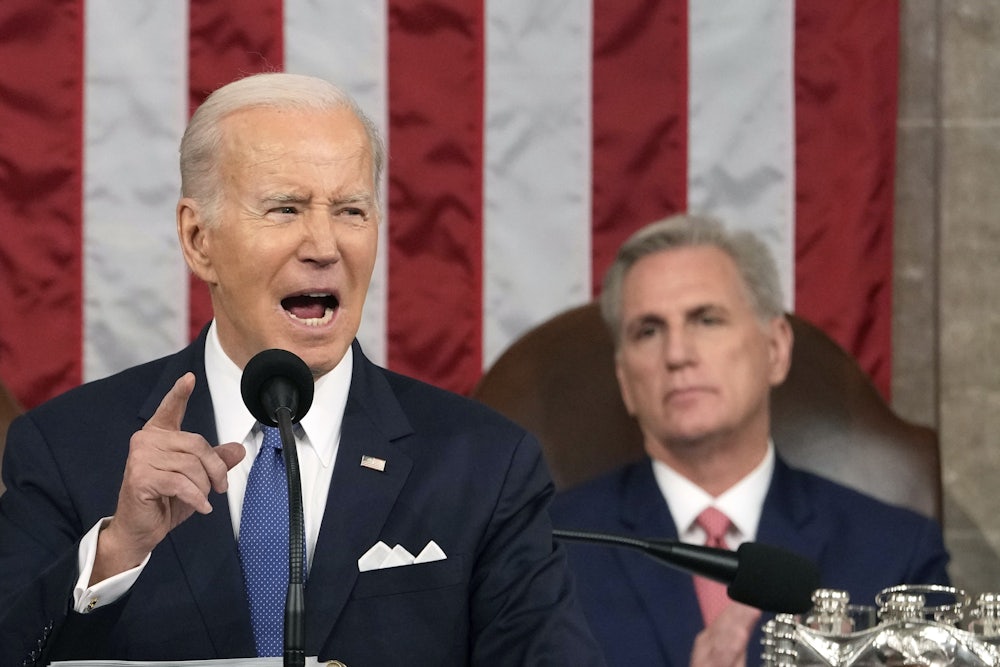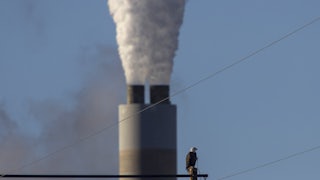The history of American capitalism consists, to a surprising degree, of routinizing and legitimizing scandalous practices.
Holding companies, a financial sleight of hand pioneered by the robber baron Jay Gould, were decried by Theodore Roosevelt in 1882 as “fraudulent corporations.” But within a few years, notes T.J. Stiles, biographer of Cornelius Vanderbilt, holding companies would be made legal by state legislatures, and today they’re perfectly commonplace.
Until 1982, stock buybacks were similarly illegal, or at least presumed so in most cases. The 1934 Securities Exchange Act, one of several laws passed to prevent a recurrence of the 1929 crash, banned stock price manipulation, and enforcers at the Securities and Exchange Commission typically concluded, quite reasonably, that because stock buybacks artificially raised stock prices, they were a form of stock manipulation. The SEC sought to formalize this soft prohibition through the 1970s in a series of proposed rules, but in the face of strong opposition from Wall Street never managed to finalize any.
Enter President Ronald Reagan or, to be more precise, John Shad, Reagan’s SEC chairman. The Reagan administration recruited Shad from E.F. Hutton & Company, violating yet another long-standing taboo. Previously, no Wall Street executive had ever been permitted to run the SEC, on the sound but now quaint-sounding principle that you can’t keep a chicken coop safe if a fox guards it. Shad took an immediate foxlike interest in the buyback prohibition, and in 1982 he inaugurated Rule 10-b-18, which effectively repealed the prohibition by extending regulatory protection to stock buybacks. A wholly predictable stampede ensued, with stock buybacks tripling the first year Rule 10-b-18 took effect. Last year, stock buybacks totaled a record $1.26 trillion.
Stock buybacks are, among other things, an outrageously corrupt way for corporate chiefs to enrich themselves because their compensation, and that of their boards, is tied to stock price. It’s the sort of practice one can easily imagine Ida Tarbell raging against 125 years ago in McClure’s. But we’re more worldly about such matters today. Granted, the SEC did try to block self-dealing in 2003 with a revision to Rule 10-b-18 that said, “It is not appropriate for the safe harbor to be available when the issuer has a heightened incentive to manipulate its share price.” But buybacks continued to proliferate, demonstrating that this regulatory tsk-tsk had no appreciable effect. By now stock buybacks are so completely out of control that corporations routinely go into hock to finance them.
This history lesson is my preface to heaping laurels on President Joe Biden for proposing, in Tuesday night’s State of the Union Address, a 4 percent surcharge on stock buybacks. Oil companies, Biden said, used the record profits they earned last year “to buy back their own stock, rewarding their CEOs and shareholders. Corporations ought to do the right thing. That’s why I propose that we quadruple the tax on corporate stock buybacks and encourage long-term investments. They’ll still make considerable profit.” The problem extends well beyond the energy sector. All big corporations do it.
Will House Republicans support this? They didn’t in August, when not a single Republican voted for the Inflation Reduction Act, which (see Chapter 37) levied the first-ever tax on stock buybacks at 1 percent. Some Republicans, Biden noted Tuesday night, want to repeal the IRA. (He said he’d veto that.) The 1 percent tax will raise about $78 billion over the next decade, according to an estimate by the Penn Wharton Budget Model. Quadrupling that to 4 percent could theoretically raise $312 billion over the next decade, but that’s presuming the higher tax’s impact on stock buybacks remains inconsequential, as it has been thus far. The tax’s goal is actually to raise considerably less than $312 billion by dissuading corporations from bingeing on buybacks in the first place. The nonprofit, right-of-center Tax Foundation estimates the 4 percent tax would raise more like $185 billion. In a better world it would raise considerably less.
Initiating the tax on buybacks is one of the very best things Biden has done as president, but Tuesday night may well have been the first time you heard about it. Its inclusion in the IRA got almost no attention when the bill passed in August. That was mainly because everyone was distracted by Senate Democrats’ (genuinely distressing) inability to persuade their fellow Democrat Kyrsten Sinema to increase the 21 percent corporate tax rate, even though the top rate was 35 percent as recently as six years ago, or to eliminate the carried interest loophole, despite the fact that even Trump opposed that loophole (or, anyway, said he did). Another reason people may not have noticed the tax on buybacks was that it was way too tiny to act as any kind of disincentive. Indeed, corporations last month announced no less than $132 billion in stock buybacks, triple the amount announced in January 2022. At 1 percent, the tax is way too low for corporations to take seriously.
Why would Republicans be foolish not to get behind increasing the stock buyback tax? Because there’s absolutely no way to argue that increasing this tax would reduce job creation. It’s the stock buybacks that reduce job creation by siphoning capital away from productive investment and into stockholders’ pockets. In 2013 through 2017, the money corporations spent on buybacks actually exceeded capital expenditures. Remember all those horror stories over the Christmas holidays about flights getting canceled and travelers not being able to reschedule? That was in large part because of airline personnel shortages, especially at Southwest. Guess where 96 percent of the five biggest airlines’ available cash went between 2010 and 2020? Stock repurchases. Senator Elizabeth Warren would be glad to tell you all about it.
If 1 percent isn’t high enough to deter buybacks, would 4 percent be high enough? Possibly not. But if that turns out to be the case, the next step will be for Biden to propose doubling the tax to 8 or 10 percent in next year’s State of the Union address. That assumes that the GOP will come around on 4 percent. Probably it won’t. But (to borrow some terminology from the world of finance), when Republicans demonstrate their willingness to tolerate Wall Street self-dealing, that pays certain dividends—the political kind—to the Democrats, clarifying that for all their anti-corporate posturing, Republicans remain the party of corporate corruption. There’s profit in that.






